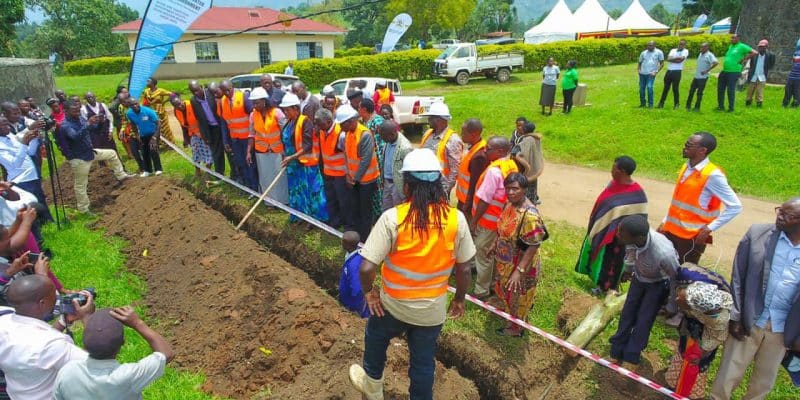In Uganda, the Minister of State for Water and the Environment, Aisha Sekindi, is launching the second phase of the Karago drinking water supply project in the Kabarole district in the west of the country. This part of the project aims to improve water supply in 21 villages.
The second phase of the Karago Water Supply Project was launched on 16 September 2022. This was done at a ceremony presided over by the Ugandan Minister of State for Water and Environment, Aisha Sekindi. The company M/S Vidas Engineering Services is carrying out the work in this municipality in the Kabarole district, under a contract recently signed with the Ugandan authorities. Water and Sanitation Development Facility-South West (WSDF-SW) is also involved in the project as a supervisor. The work is expected to take 12 months.
“The future water supply system for Karago will be a gravity system with a 300 m3 pressed steel reservoir raised on the mountains of the Moon Hill (or Rwenzori, a mountain range located on the border between Uganda and the DRC, editor’s note),” says the Ugandan Ministry of Water and Environment. In phase II of the project, the construction of a 100 m3 reinforced concrete tank, two suppression stations and a 50 m3 concrete sump is planned.
Read also –
M/S Vidas Engineering Services will also lay 400m of polyvinyl chloride (PVC) pipes and fittings and install 15 public taps for the distribution of drinking water to the population. According to the Ugandan government, drinking water coverage will be progressive in Karago Municipality, reaching 11,564 people in 2023, 15,542 people in 2024, and 20,888 people in 2044 in 21 villages.
Phase II of the Karago project is estimated to cost 4.7 billion Ugandan shillings, more than $1.2 million. It comes about a year after the end of its first phase in October 2021.
Inès Magoum






